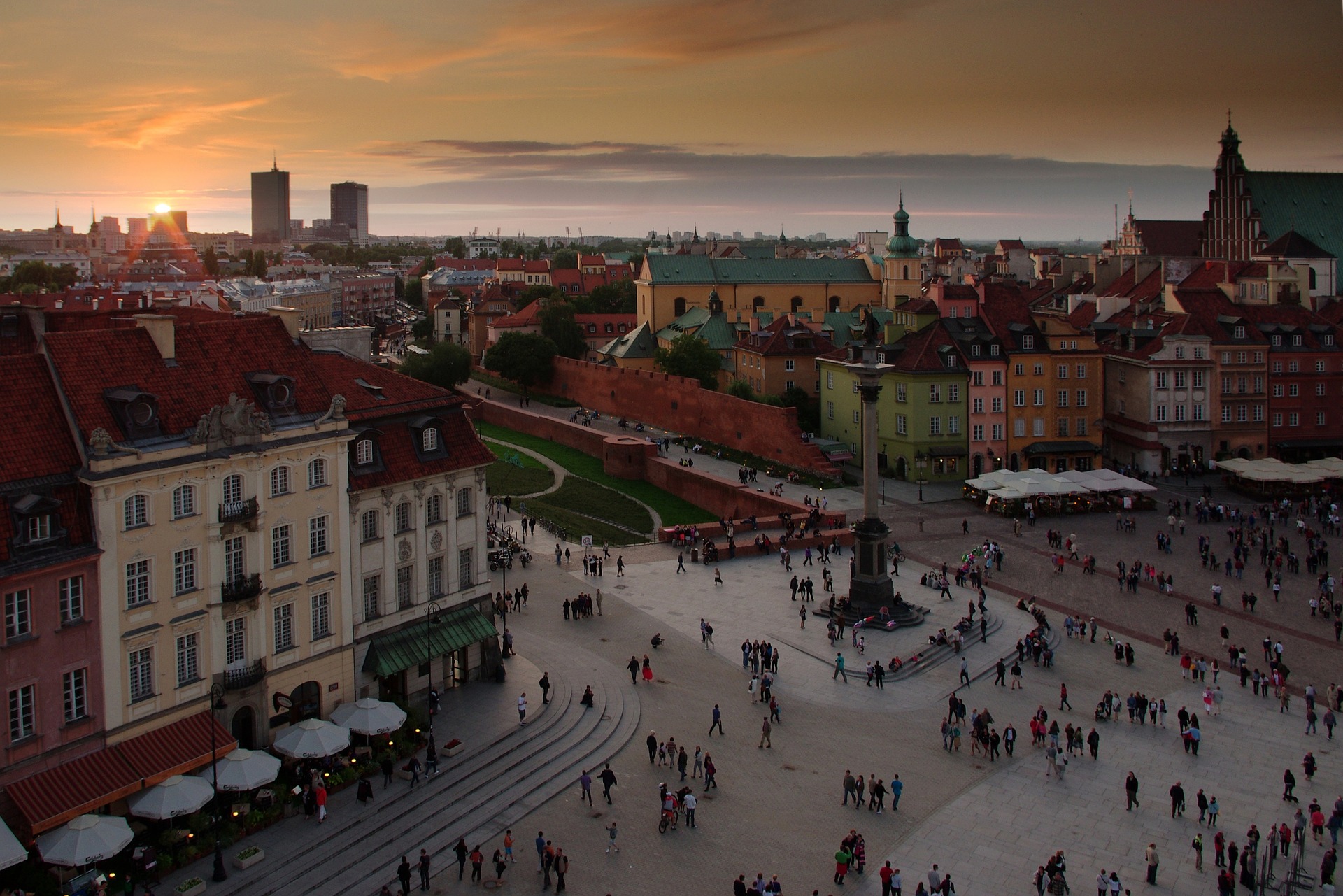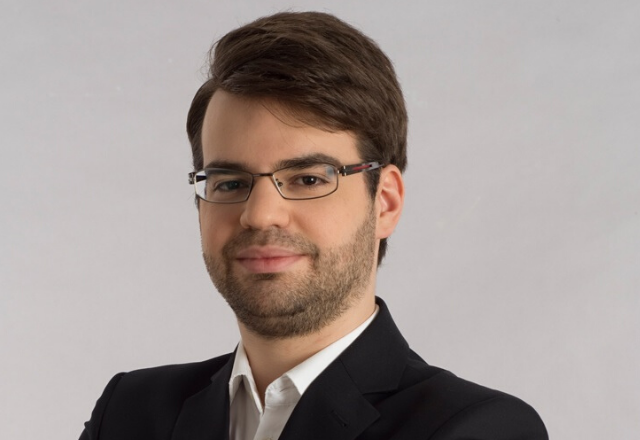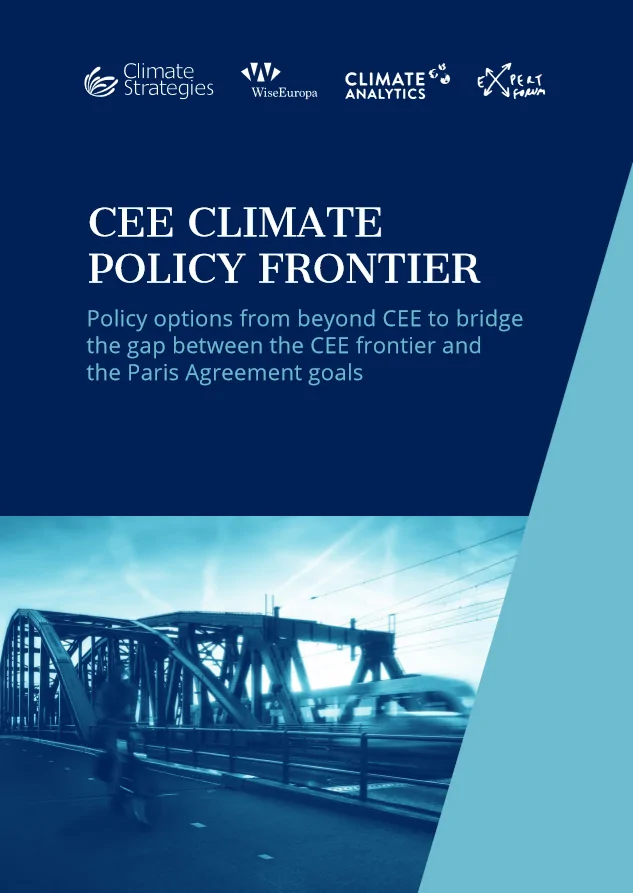Interview: Continued Commitment for Climate Action despite the Crisis
by Samuel Held and Julia Unverzagt, GIZ/EUKI
Die EUKI-Projekte CEE Climate Policy Frontier und Landscape of Climate Finance, die von WiseEuropa in Warschau durchgeführt werden, zielen darauf ab, zur Verbesserung der sektoralen Klimapolitik in der Region Mittelosteuropa (MOE) und auf europäischer Ebene beizutragen. Der Schwerpunkt liegt dabei auf den Sektoren Verkehr und Bauwesen, die nicht in das Emissionshandelssystem (ETS) der EU einbezogen sind (lesen Sie WiseEuropas aktuellen Bericht hier). Wir haben mit Aleksander Śniegocki, Leiter des Energie-, Klima- und Umweltprogramms bei WiseEuropa, gesprochen. Aleksander berichtet, dass WiseEuropas wissenschaftliche Arbeit und ihre Online-Treffen trotz der Krise nicht auf allzu viele Hindernisse stoßen. Darüber hinaus betont er, dass ein mögliches Konjunkturpaket der EU keine kohlenstoffintensiven Investitionen beinhalten sollte und dass schnelles Handeln im Angesicht der Krise nicht auf Kosten langfristiger struktureller Veränderungen gehen sollte.

Aleksander, how does the current crisis affect the work in your EUKI projects? Were there a lot of changes of plans or schedules yet due to the crisis?
Luckily, we had already organised two final workshops in our CEE Climate Policy Frontier project in February, so experts from six countries still had a chance to meet in person in Warsaw and Bucharest.

While we see some delays in establishing follow-up initiatives, given that public authorities in the region are focused on immediate response to the crisis, I think that the interest in intra-regional collaboration remains strong. In our second project focusing on the landscape of climate finance, we intend to organise webinars instead of workshops. We were initially concerned that the crisis could affect gathering data required for our study on financing building renovations, but Polish public authorities responsible for managing domestic and European funds in this area remained very responsive.
What kind of measures do you take in order to keep up the cooperation with your partners right now? How can existing networks and exchange formats persist?
We have used teleconferencing software in our projects both for internal communication and exchanges with stakeholders long before the crisis. We are now building on this experience. I think that it is still possible to have constructive discussions and knowledge exchange even without face-to-face meetings, but we have to adjust, e.g. organise a larger number of discussions in smaller groups instead of one big meeting, or adjust the agendas to include more breaks to keep participants’ concentration in place.
Does the climate topic gain or lose importance in your country at the moment?
The headlines are dominated by the coronavirus crisis and the impacts of lockdown. However, despite much-publicised claims by some Polish politicians that we should pause the climate policy, this is not a position endorsed by the government as a whole or general public. The Ministry of Climate has confirmed that the energy transition will continue and is working on measures to support the renewable industry even in times of crisis. The discussion on climate targets both for 2030 and 2050 has not been forgotten. In the coming months, I expect the climate issues to become even more relevant, given that we are now facing one of the worst droughts in many years.
More about CEE Climate Policy Frontier and Landscape of Climate Finance

The discussion on climate targets both for 2030 and 2050 has not been forgotten.
Aleksander Śniegocki, WiseEuropa
What potential does digitalisation hold to foster climate action – not only in crises but in general?
Within the climate community, I see that the policy discussions have become much more inclusive, as you no longer have to travel to Brussels to participate in the European-level events. I hope that we will see a permanent increase in the role of web-based events which will accelerate the development of a common, ambitious European response to the climate emergency. On the systemic level, embracing digital communication will also allow us to decrease unnecessary travel and reduce associated emissions.
In your opinion, is there anything the EU could do to bring the climate topic back on the agenda, even in the light of threatened economies?
On the EU level, we already have seen numerous declarations of continued commitment to climate action. Now it is crucial to deliver the European Green Deal policies as well as to avoid carbon-intensive investments in the recovery package. It is also important to make sure that the crisis response will not come at the cost of structural, long-term measures such as supporting the CEE region in its green transition.
It is also important to make sure that the crisis response will not come at the cost of structural, long-term measures such as supporting the CEE region in its green transition.
Aleksander Śniegocki, WiseEuropa
